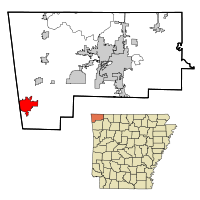Image


David Cameron, city administrator, said the proposal is not so much about dissatisfaction with current providers as it is about finding new revenue for the city. Cameron said revenue from electric services has been a key source of funding for various projects and necessities for the city. That “enterprise” fund is getting smaller, Cameron said, and an alternative funding source is needed. “We have done a good job managing accounts, building a reserve,” Cameron said. “We want to keep building on the programs we have. It takes money and funds to do that.” City officials discussed the issue for the last 18 months and decided to put it to a referendum. Voters will decide the issue May 22.That is a fairly unique reason. Most communities want to build these networks to encourage economic development and other indirect benefits to the community. Given the challenge of building and operating networks, few set a primary goal of boosting city revenue.

If approved by voters, the city plans to spend $8.3 million to install 100 miles of fiber optic cable directly to homes and businesses. The city should be able to repay the debt in 12 years, if things go according to a feasibility study presented to the city’s board of directors in January. Cameron said projections show the system could begin making a profit after three years.Just as in Longmont, Colorado, the incumbent cable company has created a fly-by-night astroturf group to oppose Siloam Spring's initiative. In Longmont, the group predictably disappeared shortly after Comcast lost the referendum. In the Longmont referendum, the opposition came out of Denver. To fight the community in Siloam Springs, Cox is funding a group out of Little Rock that calls itself Arkansans for Limited Government. (If the only threat to my monopoly were a local government, I suppose I would want to limit it also.) Though CenturyLink ostensibly competes with Cox, its DSL cannot offer the same capacity as cable networks (the problem we call a Looming Monopoly). After the approach was announced, the usual public v. private rhetoric emerged. Among others, the head of the of Arkansas Chamber of Commerce is defending Cox, probably a significant member of that Chamber:
“Make no mistake, when government competes with private business it always has an unfair advantage, and it will stifle economic growth and competition in the Siloam Springs market,” Zook wrote.And so we see the same false claims we have previously debunked. And right next to claims that the public sector has all the advantages and will crush the private sector, we find a paradoxical claim:
Zook said there are many instances across the country where cities have tried this and failed.The reality is that Cox and CenturyLink have all the advantages AND that communities generally succeed in creating signficant community benefits by building their own networks. They get real competition, lower prices, more investment, and a better climate for local businesses to succeed. Another article was dedicated entirely to arguments against the community effort (as though every other article did not devote enough time to these pro-Cox arguments).
 In it, a manager for CenturyLink claimed that they would be in favor of a public/private partnership but Cox quickly rejected the idea:
In it, a manager for CenturyLink claimed that they would be in favor of a public/private partnership but Cox quickly rejected the idea:
In a public-private partnership, a city pays a certain percentage of costs for new or upgraded services and an established private company does the work and provides the service. ... Pitcock said Cox Communications has never taken public monies for joint ventures, and probably wouldn’t take part in a public-private venture in Siloam Springs.If CenturyLink wants a public/private partnership, it should join UTOPIA to offer real services to Utah residents and businesses rather than its patheticly slow DSL. Following one of several community meetings to discuss the project, reaction to the initiative seemed mixed, with many people wanting more information. At the meeting, the assistant city director of Sallisaw, which operates a muni FTTH network in Oklahoma, spoke about their experience.
Skelton talked about the success of the Sallisaw system, noting that 99 out of 100 test customers stayed with the city’s service after the trial period in 2005 and said the city should make a profit by the end of the year. Customer bills average $103, he said.
 However, Sallisaw had fewer options for broadband when they started. By contrast, Cox has proved willing to get very dirty in its opposition to new competition, as seen in Lafayette (see the last paragraph of this story).
The most recent story from the City Wire discusses other muni broadband networks in Arkansas.
However, Sallisaw had fewer options for broadband when they started. By contrast, Cox has proved willing to get very dirty in its opposition to new competition, as seen in Lafayette (see the last paragraph of this story).
The most recent story from the City Wire discusses other muni broadband networks in Arkansas.
Conway in central Arkansas and Paragould in the northeast corner have had city-owned cable services since 1980 and 1990, respectively. They’ve continued to upgrade and add services as times and technologies changed. Officials for both systems say they operate at a profit.
